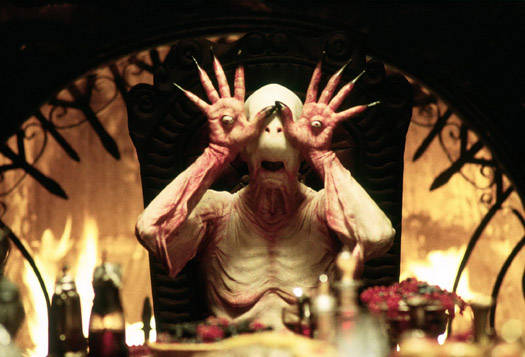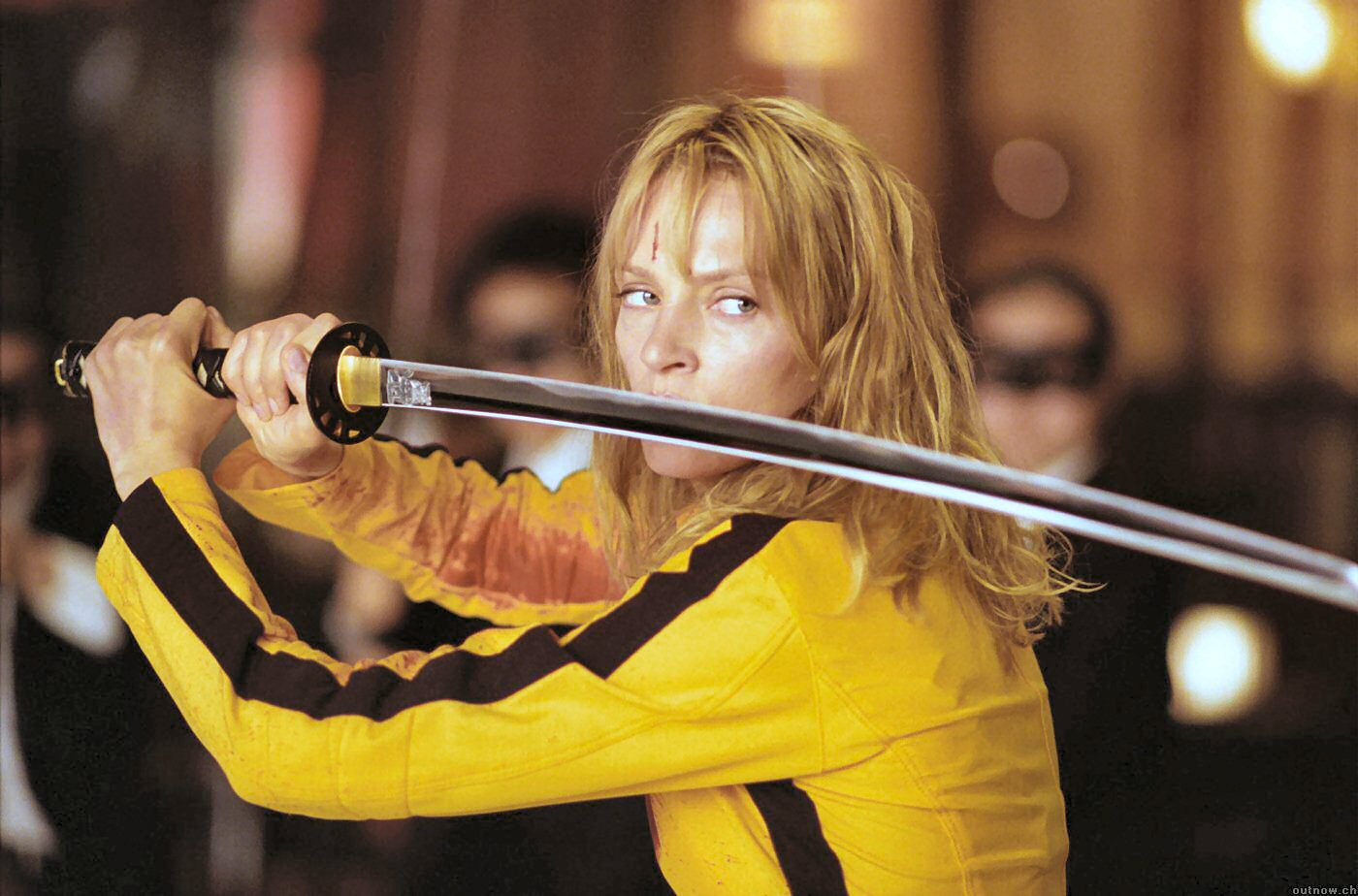Here, then are my nominations for the best films of the decade - it was a difficult selection, so I'd love to hear thoughts from readers on any other films that you think should make the list, and why.
 10. Children of Men, 2006
10. Children of Men, 2006This amazing piece of cinema (the twenty minute single take toward the end should go on record as the most amazingly staged camera move ever) relies not on special effects, but on the staging and impact of a semi-futuristic story about the inability of the human race to procreate, a world consumed by endless war, and one man's attempt to save a baby. Delivers a knockout, gut-reeling metaphor on the cruelties of civilization that we haven't seen since movies like Clockwork Orange or Dr. Strangelove.
 9. Pan's Labyrinth, 2006
9. Pan's Labyrinth, 2006Like Cuarón's Children of Men, del Toro's beautiful costume drama about a little girl who fantasizes escape from the clutches of a dictator during the Spanish civil war is an elaborately staged metaphor for a world consumed by cruelty and war, and goes straight for a guttural revelation at the end. Both movies are wonderful stories of innocence and darkness, but Pan's Labyrinth also creates an entire magical world of fairies, princesses, and satyrs: the extraordinary heights of imagination here gives it one up on Cuarón's fable.
Paul Thomas Anderson's flawed masterpiece about the rise and fall of an ambitious oilman has all the scope and drama of our very best of cinema - Citizen Kane or Intolerance. Daniel Day-Lewis delivers an out-sized performance as well. The film is at once both brilliant and incomplete: the resolution feels a bit off; the score is not quite right; there are moments when you question the choice of editing. Is this rapture, or just the edge of incomprehension? To be great, one must take great chances: Anderson does. That he doesn't quite pull it off shouldn't make this film any less of a triumph.
Has there been a film (or films) like this before or since? Kill Bill is the ultimate expression of Tarantino's entire oeuvre, and all the minor Tarantinos who seek to emulate him: an expression of film history distilled beyond self-reference and irony into a new kind of film form, an entire super-ironic parable of pure style. Tarantino's skills as a film scorer (the music is brilliant) are equally matched by his elaborately staged costume drama. Both became instantly iconic in the culture, and possibly no other film this decade has had as much influence on advertising, art, and culture.
Though released just in time for the end of the decade, this apparently simple little movie captures our times better than anything has in years. The only comedy on the list, director Reitman has made a career this decade of creating these fun, lighthearted tweaks of our popular culture (Juno, Thank You for Smoking); Up in the Air is his best, and the decade's.
Rob Marshal's Chicago won the Oscars for 2002 - the first musical to do so in decades - and deservedly so. The movie is a joy to watch; Marshal's insight was to turn the performances into an expression of Roxie's imagination, thus transforming the theatricality and musicality into something that's uniquely cinematic: which is what so many filmed musicals lack. It also didn't hurt that Fosse's music and book was one of his best.
It should have won the Oscars last year. A perfect film that tells a unique story about a German teenager's erotic relationship with a ticket taker with a dangerous Nazi past, and how their lives evolve. There're no missteps here, and the movie gets at questions of loyalty, history, complicity, and morality like few have.
Peter Jackson seemingly went to New Zealand with a crew of young actors (and veterans Ian McKellan, Ian Holm, and Christopher Lee) and there, discovered cinematic gold. The gold just kept coming for three amazing, iconic movies that set the tone for this decade. Filled with everything that old Hollywood used to do and that we still want from our movies: great storytelling, amazing effects, dramatic scenery, and tales of bravery, valor, friendship, and hearts broken. Any one of the three movies could have won the Oscars, but they knew from the start, the ending would be the best.
 1. No Country for Old Men, 2007
1. No Country for Old Men, 2007No other movie this decade has so perfectly captured our era's sense of dread and foreboding. Based on McCarthy's excellent book and directed by perhaps our most original working directors, the Cohen Brothers, the movie came together as something standing even above the typical work of either of these fine artists. Perhaps the purest of any of this decade's examinations of innocence, complicity, and evil, No Country for Old Men goes a step further, and gives us a sense not only of the heart of darkness, but the toll it takes from us as we try to squeeze a bit of justice out of life, as well.











No comments:
Post a Comment
Note: Only a member of this blog may post a comment.